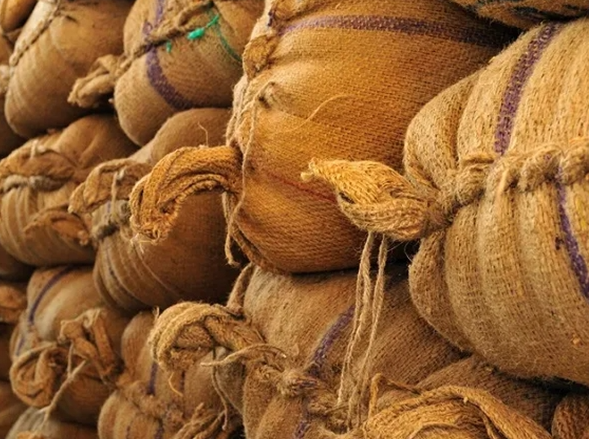
Indian Government Approves Extension of Mandatory Jute Packaging Norms to Support Jute Industry
The Indian government has approved the extension of mandatory packaging norms requiring all foodgrains and 20% sugar to be packed in jute bags, according to sources. The reservation norms for mandatory use of jute in packaging for Jute Year 2022-23 (July 1, 2022 to June 30, 2023) were cleared at a meeting of the Union Cabinet chaired by Prime Minister Narendra Modi. The mandatory packaging norms approved for Jute Year 2022-23 provide for 100% reservation of foodgrains and 20% reservation of sugar to be compulsorily packed in jute bags. This move is expected to provide relief to the 3.7 lakh workers employed in jute mills and ancillary units as well as support the livelihoods of several lakh farm families.
The Jute Packaging Materials (JPM) Act was enacted in 1987 to protect the interests of jute farmers, workers, and people engaged in jute goods’ production. The reservation norms under the JPM Act provide direct employment to 3.7 lakh workers and several lakh farmers in the jute sector. It is worth noting that 75% of the total production of the jute industry is jute sacking bags, of which 85% is supplied to the Food Corporation of India (FCI) and State Procurement Agencies (SPAs), and the rest is exported or sold directly. The government purchases jute sacking bags worth approximately Rs 9,000 crore every year for packing of foodgrains, thereby ensuring a guaranteed market for the produce of jute farmers and workers.
Jute is a natural, biodegradable, renewable, and reusable fiber and fulfills all sustainability parameters. The use of jute bags for packaging helps protect the environment, making it an eco-friendly option. The jute industry is significant to India’s economy, especially in the eastern region, including West Bengal, Bihar, Odisha, Assam, Tripura, Meghalaya, besides Andhra Pradesh and Telangana.
The approval to these norms is expected to provide relief to workers employed in jute mills and ancillary units as well as support the livelihoods of several lakh farm families. The mandatory use of jute packaging is also expected to help protect the environment, as jute is a natural, biodegradable, renewable, and reusable fiber. Additionally, the guaranteed market for jute sacking bags through government purchases will support the jute industry and the farmers and workers who rely on it for their livelihoods.